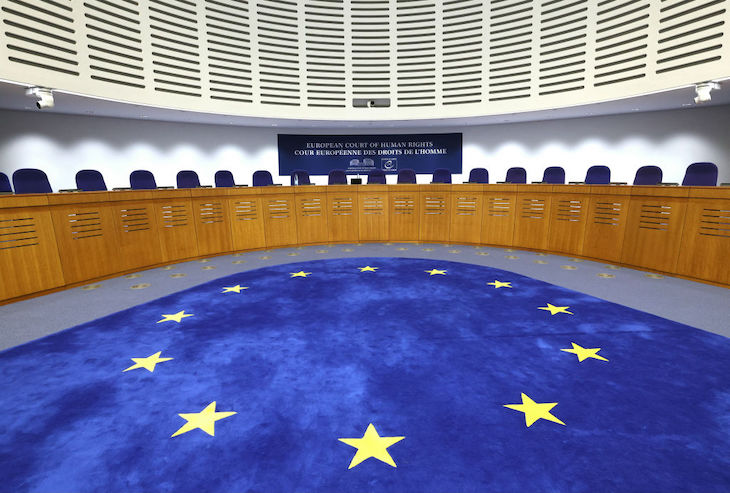It is twenty-five years to the day since the Human Rights Act 1998 (HRA) came into force. In that time, human rights law has not become a settled, accepted part of our constitution. To the chagrin and dismay of many lawyers, including no doubt Sir Keir Starmer and Lord Hermer, it remains stubbornly controversial. But the controversy is warranted – this body of law distorts parliamentary democracy, disables good government, and departs from the ideal of the rule of law.
The HRA’s record over the last quarter century exposes the constitutional and practical problems that arise from open-ended rights litigation
While the government came into office vowing never to leave the European Convention on Human Rights (ECHR) and proudly asserting its ‘absolute commitment’ to the HRA, there is clearly a new openness, on all sides of politics, to far-reaching human rights law reform. The Reform party is committed to ECHR withdrawal, the Conservative party is openly discussing this, and even some Labour MPs are mooting it.
If any future government is to secure effective reform, it will have to reflect on the failure of the various half-baked and half-hearted attempts that successive Conservative governments made between 2010 and 2024 to deal with this problem. In a new Policy Exchange paper published today, The Future of Human Rights Law, Sir Stephen Laws and I review this sorry record and outline the way forward.
The record of failure begins with the Coalition Government’s 2011 Commission on a UK Bill of Rights, which was hampered by its divided membership and limited terms of reference. Its failure owed much to the imprecision of the Conservative party’s understanding of the nature of the problem and to its persistent but illusory hope that replacing the HRA with a British Bill of Rights was the solution.
The Council of Europe’s 2012 Brighton Declaration, initiated by the UK, is sometimes hailed as a successful reform. It led to Protocol 15 of the ECHR, which came into force in August 2021 and introduced a new preamble into the Convention, stressing the importance of subsidiarity. But this has not disciplined the excesses of the European Court of Human Rights, as its absurd climate change ruling last year confirms.
The 2015 Conservative party manifesto promised to scrap the HRA, which was welcome, but did not explain how replacing it with a British Bill of Rights would represent an improvement. Brexit swept away whatever plans there were to legislate. While the 2019 manifesto promised to update the HRA, to restore balance, an Independent Human Rights Act Review was instead established, the point of which was to secure support from within the legal profession for change. This was a fool’s errand, outsourcing responsibility for the government’s thinking and tacitly giving lawyers a veto.
The 2022 Bill of Rights Bill would have addressed some real problems with the HRA, but also risked introducing new problems, notably imprecision about what rights Parliament intended to protect and what powers British judges would have in consequence. It also risked establishing a cross-party consensus in favour of open-ended rights adjudication.
The uncertainty of aim and inconstancy of method that characterised the 2010-2024 period should not be repeated. In developing a future programme of human rights law reform, parliamentarians need to avoid a legalistic approach that is biased in favour of the status quo. They must also distinguish human rights law from human rights and reject the claim that protection of human rights requires any court, domestic or international, to stand in judgement over Parliament.
Parliamentarians should recognise the indispensable role that ordinary law plays in securing human rights. Human rights law is not necessary at all. The HRA’s record over the last quarter century exposes the constitutional and practical problems that arise from open-ended rights litigation, a point further illustrated by Policy Exchange’s study, a year ago, of twenty-five notable HRA cases.
The aim of any programme of reform should be to restore Parliament’s primacy and to protect effective government from unpredictable rights adjudication. Such a programme will inevitably be in tension with membership of the ECHR and the UK’s subjection to the Strasbourg Court. There are three main options for how to address this tension.
The first is for the government to adopt a stance of ‘principled defiance’ towards judgments of the Strasbourg Court that openly depart from the terms the UK and other states agreed. The problem, as the Conservatives’ recent record in office shows, is that such an approach, while justifiable in principle, is likely to come under intolerable political pressure.
The second option is to work with other member states to reform the ECHR. If treaty reform is to be worthwhile, it must be specific and far-reaching. The various British attempts to work with other members, including the 2012 Brighton Declaration, suggest that states may fail to confront the true nature of the problem with the Strasbourg Court, which is not a problem in managing a vast case load but rather a fundamental failure to adhere to the limits of its jurisdiction.
Without very careful political direction, any UK attempt to secure treaty reform would not be worth undertaking and would simply waste time and dissipate political capital.
The third option is withdrawal from the ECHR. There is a very strong case in principle for withdrawal, which would make it possible to restore Parliament’s primacy in protecting human rights and to recover the rule of law.
Various objections will be made to withdrawal, including that it would place the UK in breach of the Belfast (Good Friday) Agreement – and in the company of Lukashenko’s Belarus and Putin’s Russia. The first objection is a serious one. It was answered by Policy Exchange’s paper a month ago, to which there has been no effective response. The second objection is not serious. Leaving the ECHR would place the UK in good company with Australia, Canada and New Zealand; one might just as easily say that remaining in the ECHR places us in unhappy company with Azerbaijan and Turkey.
Still, any government that intends to lead the UK out of the ECHR, or to do so if treaty reform fails, needs to anticipate these objections, and others, and to prepare to answer them. Anyone who is serious about human rights law reform needs to consider the failings of the recent past, to confront the reality of human rights law, and to be willing to act boldly to secure meaningful change.
Richard Ekins KC (Hon) is Head of Policy Exchange’s Judicial Power Project and Professor of Law and Constitutional Government in the University of Oxford. He is co-author of Policy Exchange’s new paper The Future of Human Rights Law Reform







Comments